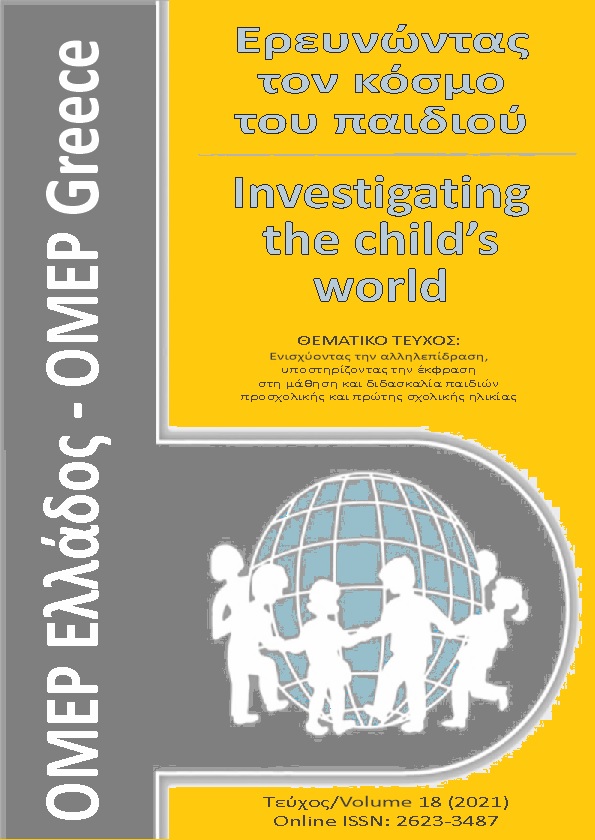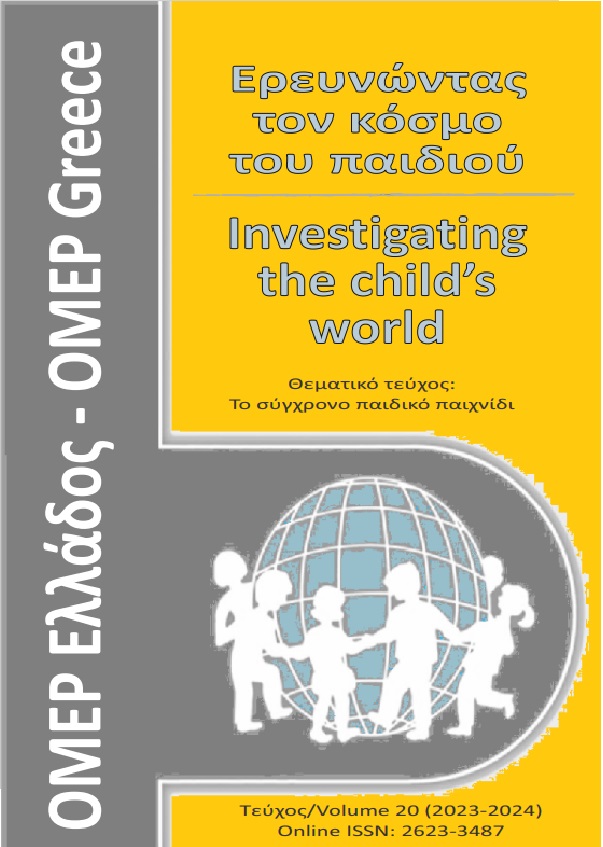Free play in the kindergarten class: Children’s voices through photo-narration and drawing-telling techniques

Abstract
Drawing on participatory pedagogical and research approaches that acknowledge young learners as competent actors and expert informants, value their views on and aspirations for the curriculum and the pedagogical process, the present study investigated Kindergarten children’s understandings of play within their classroom environment during free-choice activities. Adopting the Mosaic approach, research methods such as drawing-telling and photo-narration were implemented. The results showed that focusing on specific characteristics, children express a clear view of play in the kindergarten. Personal interests and objects that are of particular value to them, positive emotions and interactions with peers seem to guide their play choices. At the same time, the results uncover children’s contradictory responses related to adults’ involvement in their play, their interesting views on learning-play links and factors that inhibit their play along with their insightful suggestions for improving the play environment. The discussion sought to make a synthesis of the different aspects of the participants’ play experience, and in the light of participatory approaches we make suggestions to renegotiate play and teachers’ role in the context of early childhood education.
Article Details
- How to Cite
-
Topi, G., & Papandreou, M. (2021). Free play in the kindergarten class: Children’s voices through photo-narration and drawing-telling techniques. Investigating the child’s World, 18, 83–101. https://doi.org/10.12681/icw.30024
- Issue
- Vol. 18 (2021)
- Section
- Scientific articles & educational projects

This work is licensed under a Creative Commons Attribution-NonCommercial 4.0 International License.
Authors who publish with this journal agree to the following terms:
· Authors retain copyright and grant the journal right of first publication with the work simultaneously licensed under a Creative Commons Attribution Non-Commercial License that allows others to share the work with an acknowledgement of the work's authorship and initial publication in this journal.
· Authors are able to enter into separate, additional contractual arrangements for the non-exclusive distribution of the journal's published version of the work (e.g. post it to an institutional repository or publish it in a book), with an acknowledgement of its initial publication in this journal.
· Authors are permitted and encouraged to post their work online (preferably in institutional repositories or on their website) prior to and during the submission process, as it can lead to productive exchanges, as well as earlier and greater citation of published work.



